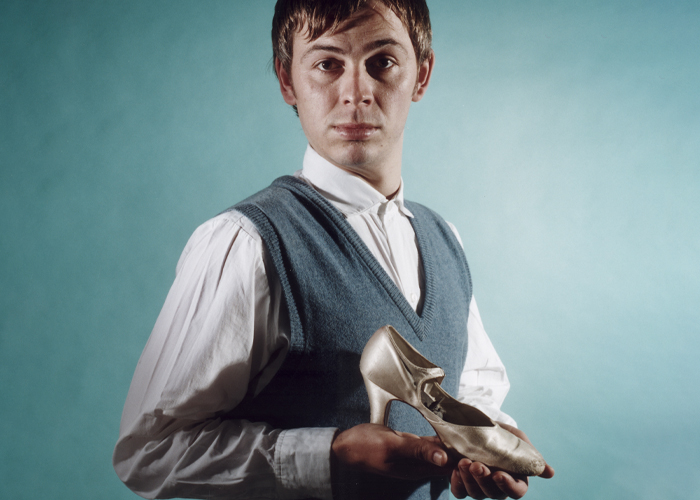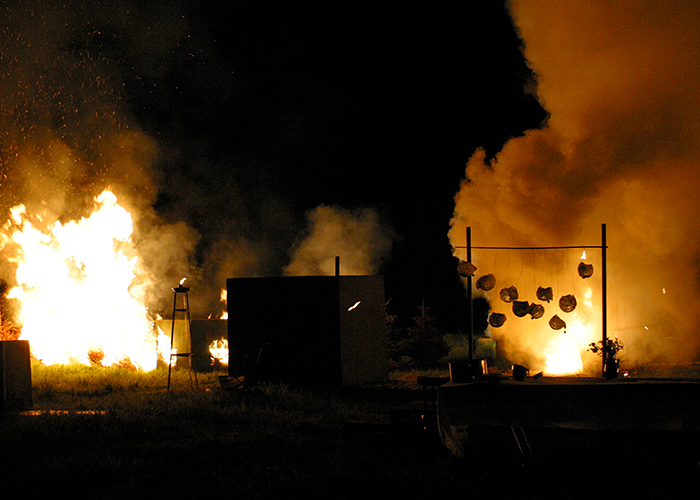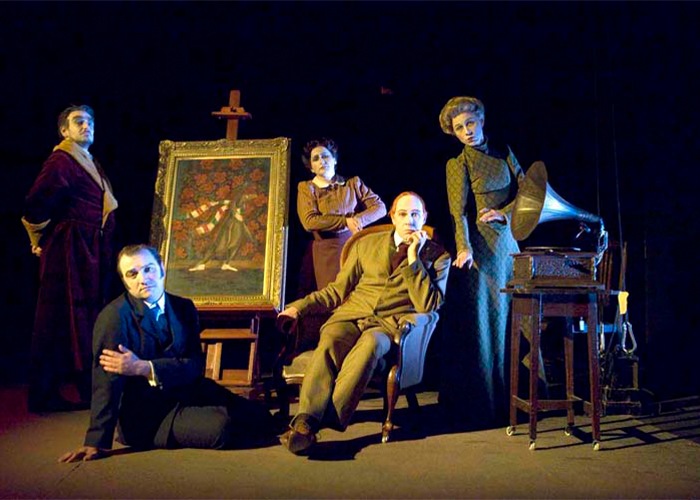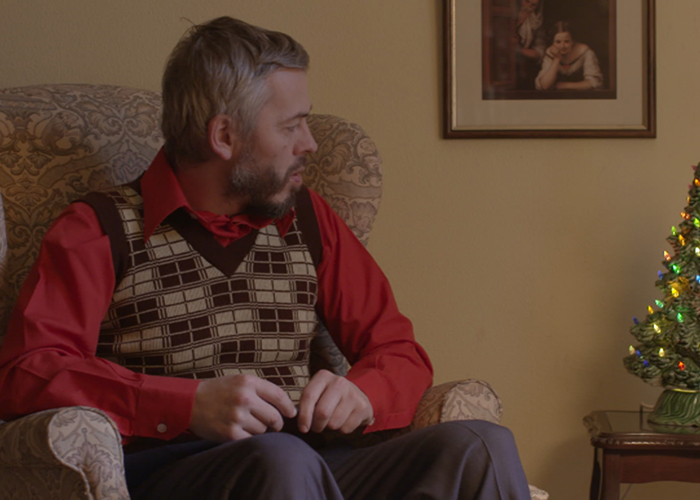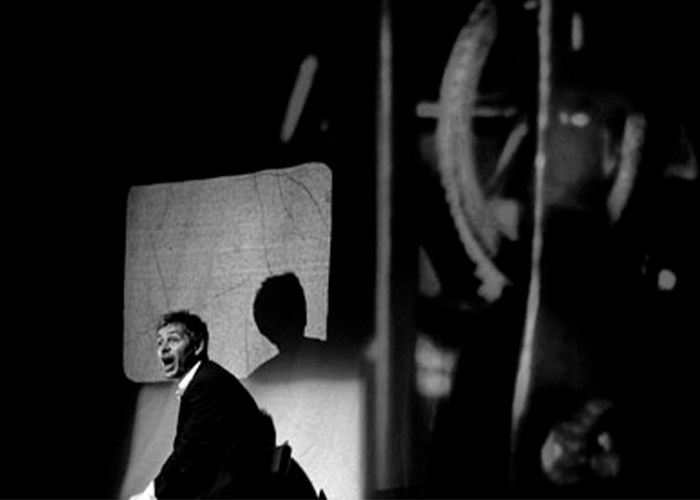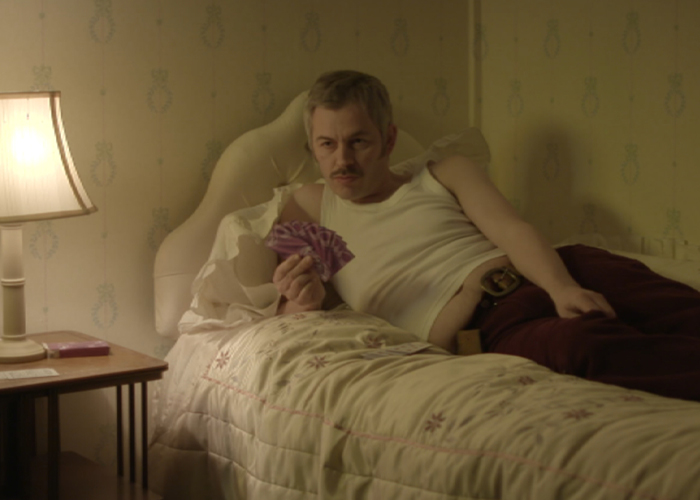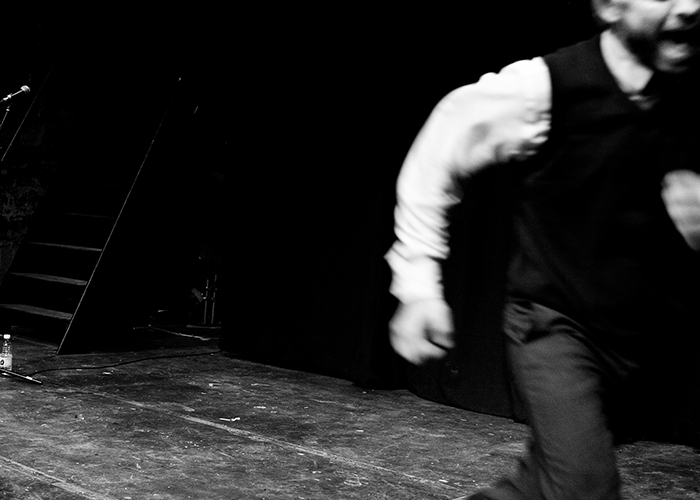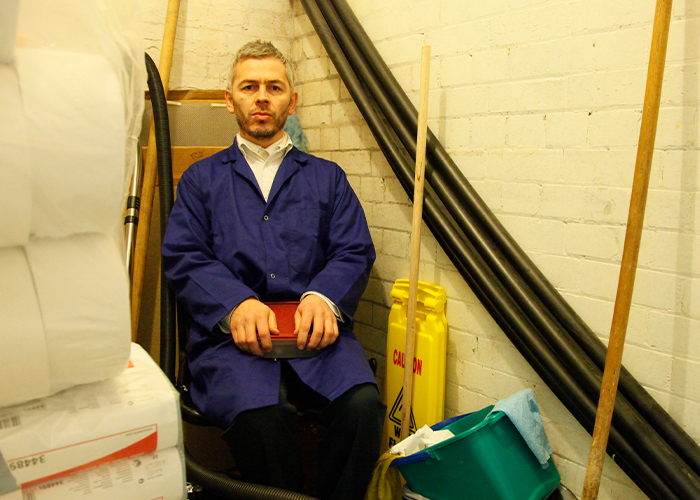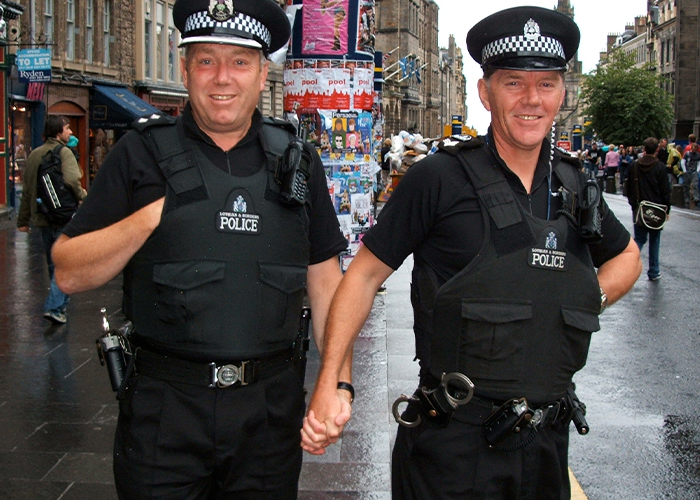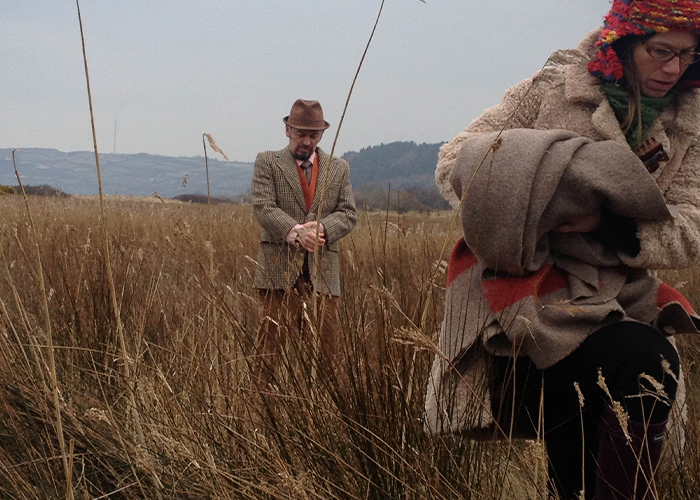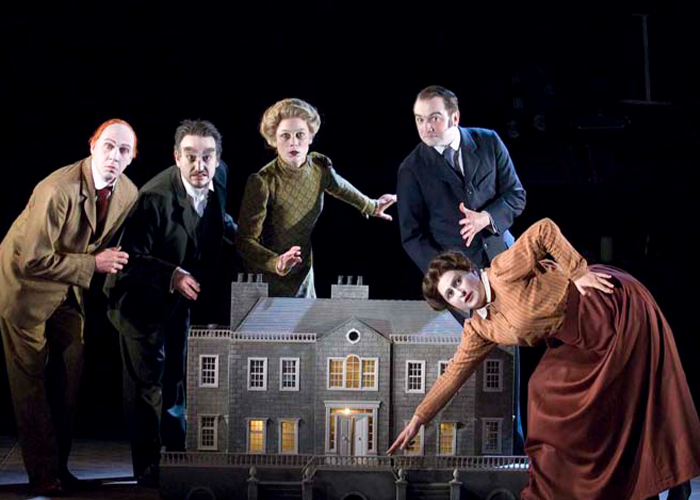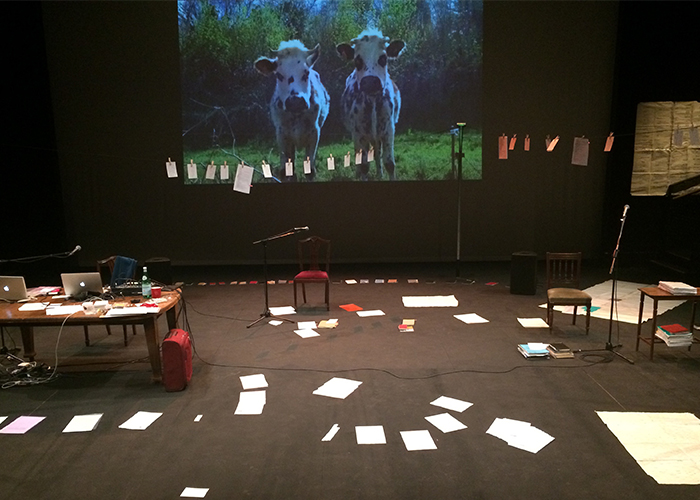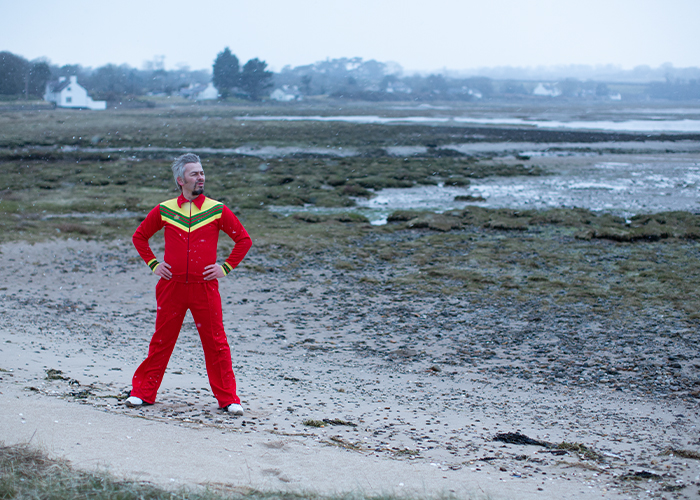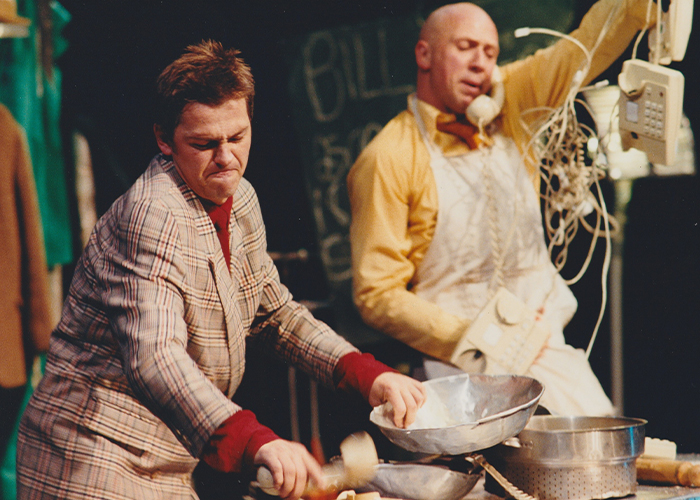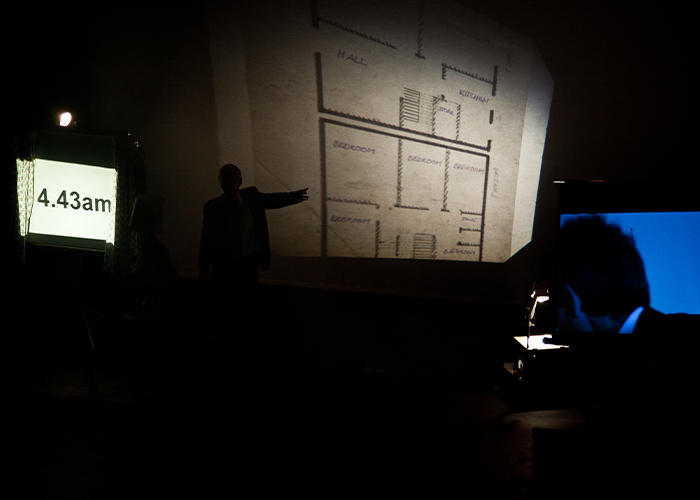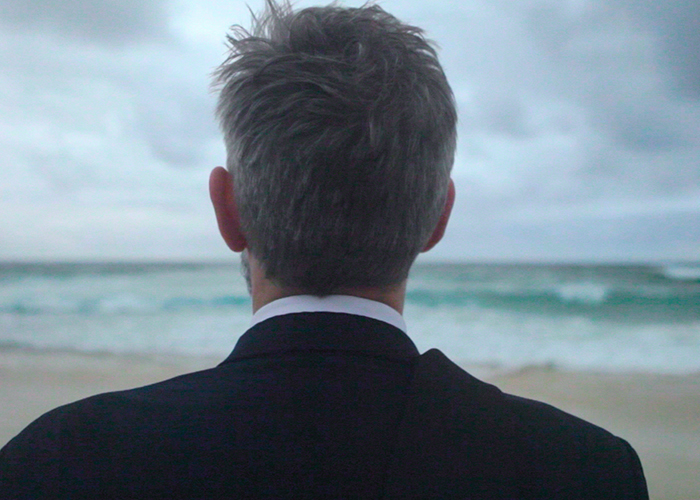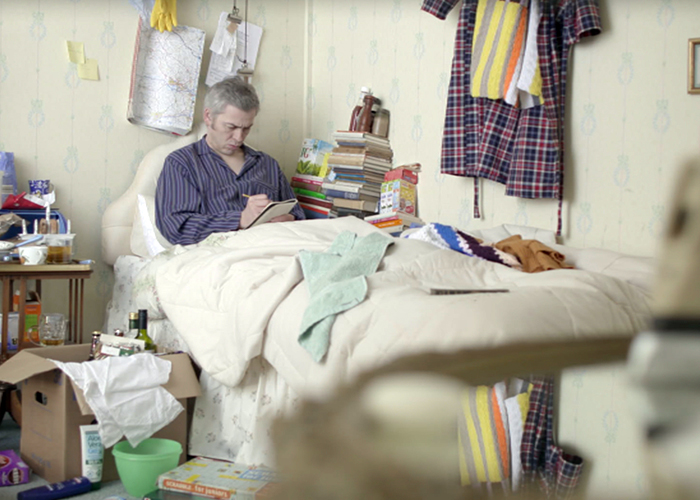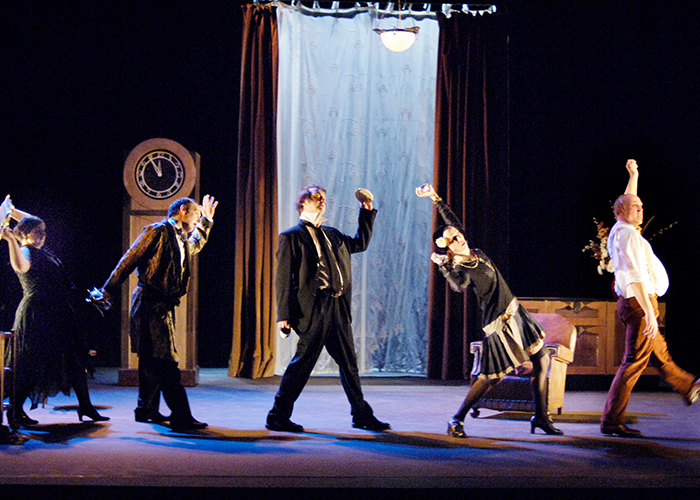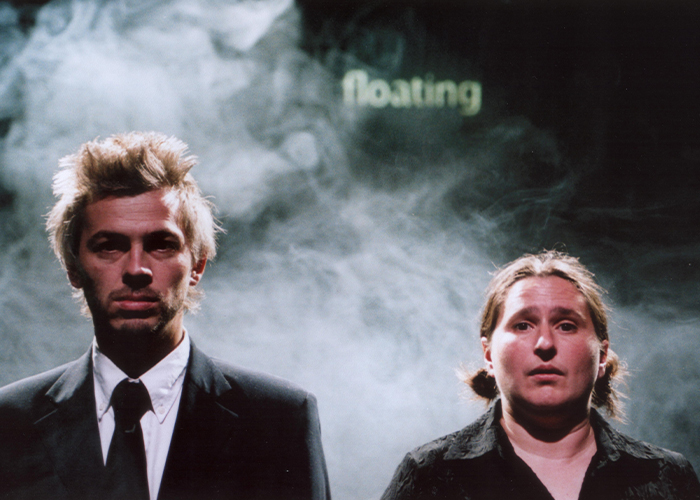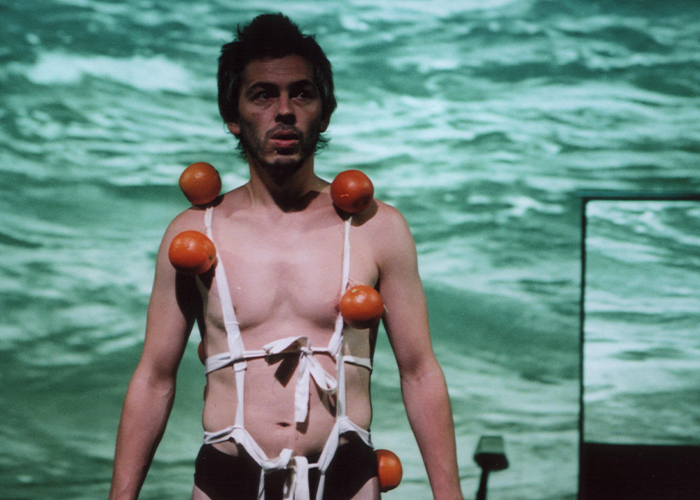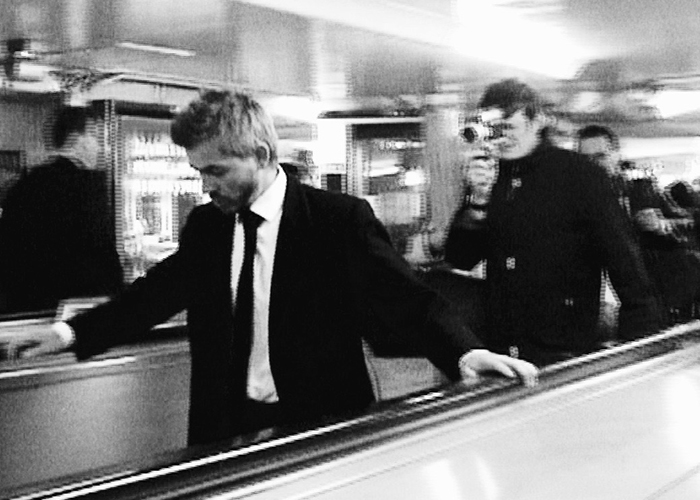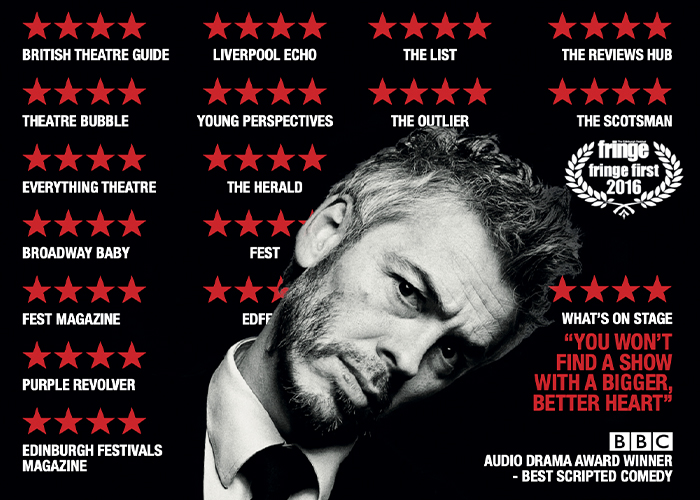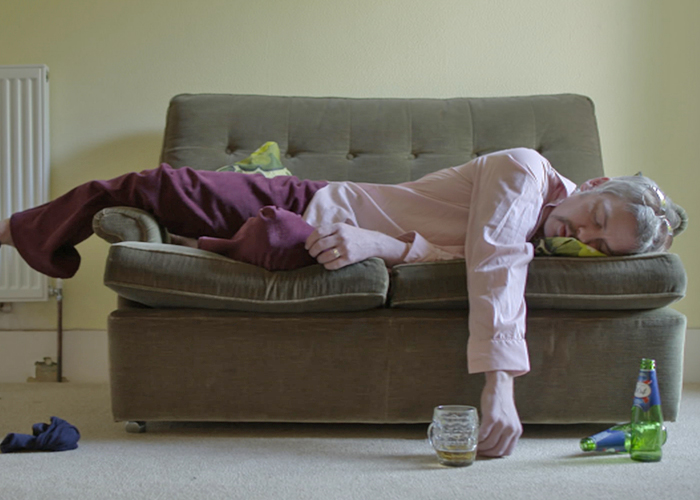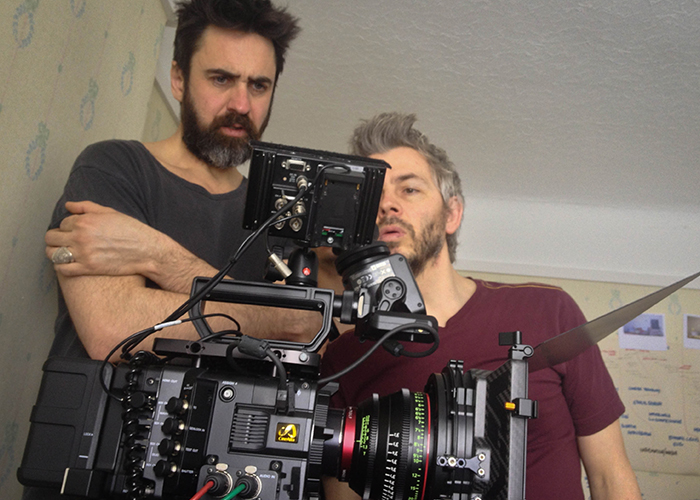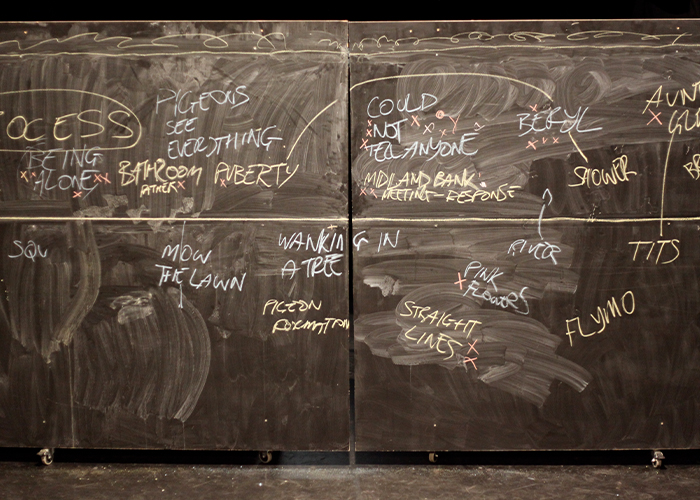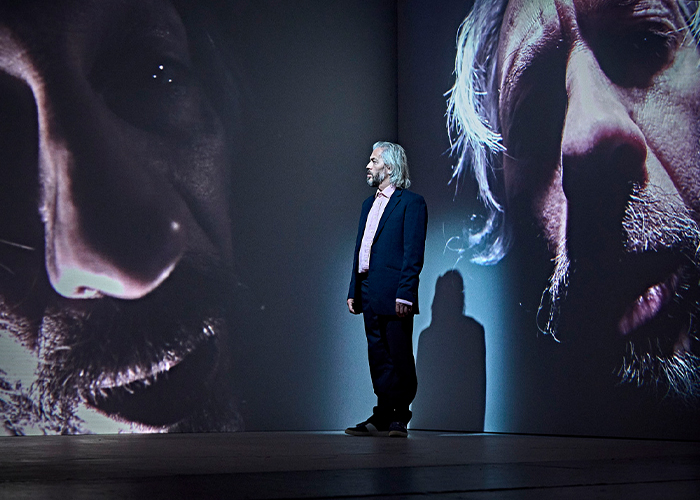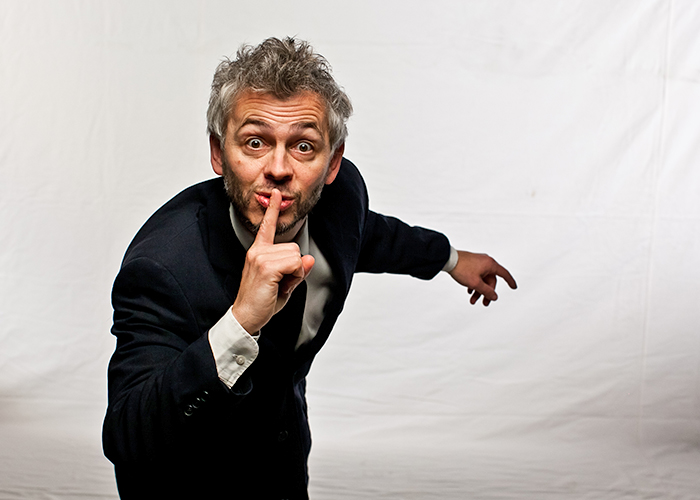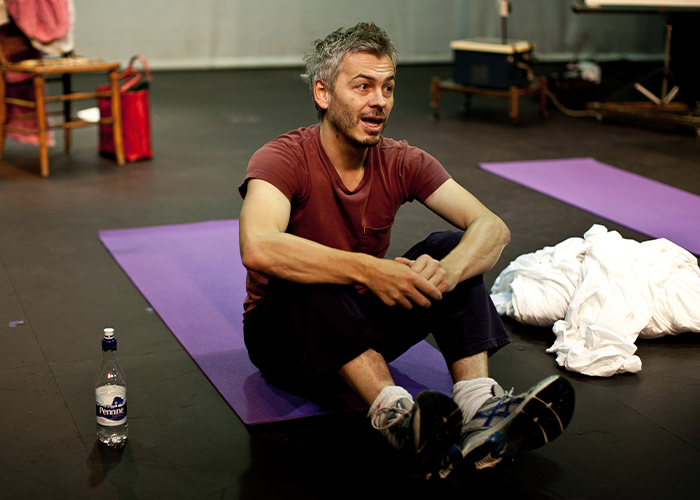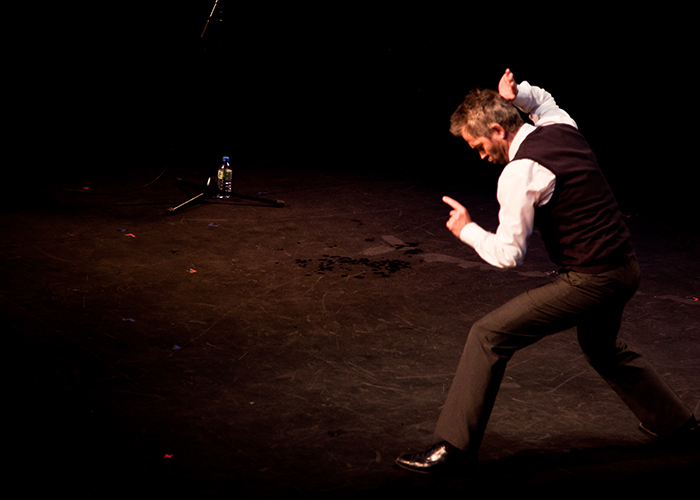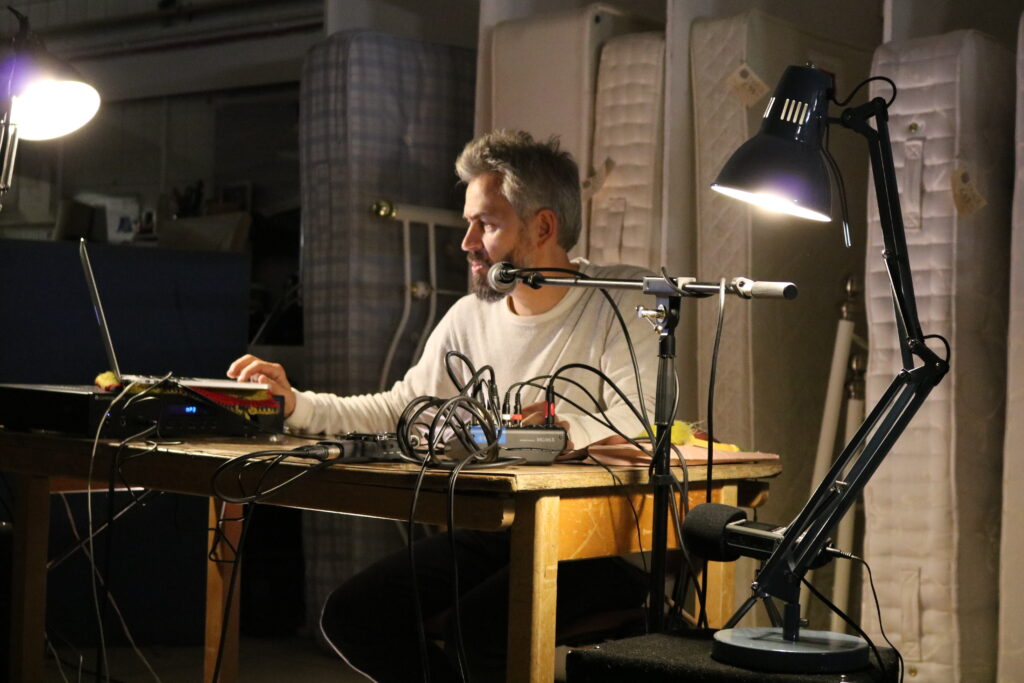
The Duke is a one-man show about a crisis that affects us all
The Edinburgh fringe can be a cut-throat market, but by staging a free show – with donations going to Save the Children – Shôn Dale-Jones asks us to consider what we value in the world
‘I wanted to make a piece of work that has a real and concrete function’ … Shon Dale-Jones in The Duke, created with Hoipolloi. Photograph: Brian Roberts
How do we accord value? Why does a banker get paid more than a nurse? Why is a 3pm slot in the Pleasance Courtyard during the Edinburgh festival more costly than an 11am slot elsewhere? What is the value of a seat in a refugee boat? Or a porcelain figure? How much is a piece of theatre worth? Is the value of something only in the price it can command, and is it still a bargain if it’s free? Does the market always decide?
Those are some of the questions you might consider after seeing The Duke, a new piece created by Hoipolloi’s Shôn Dale-Jones, who is best known for whimsical shows in which he performs as his alter ego Hugh Hughes, including Floating, Story of a Rabbit and Things I Forgot I Remembered.
The Duke is inspired by a real family story. In 1974, Dale-Jones’s father bought a porcelain figure of the Duke of Wellington for £750 – the equivalent of £8,100 in today’s money. Dale-Jones Sr saw it as an investment for his family. Last year Shôn’s lonely, widowed mother accidentally broke the figure while Shôn was listening to a report about the refugee crisis and was busy rewriting a film script which, if the producers liked it, would deliver a significant payday.
A one-man show, The Duke mixes fact and fiction and quotes film-maker Luis Buñuel’s assertion that “fact and fiction are equally personal and equally felt”. It is also grounded in the harsh reality of the current situation, as Europe faces its worst refugee crisis, with people dying daily on boats in the Mediterranean, and the world’s richest countries, including the UK, are those least likely to put out a helping hand. The Duke only mentions refugees three times in the entire hour, and yet does so in a way that draws the crisis closer to home, making it more personal and difficult to ignore.
“We have a responsibility to respond. I have not lived through such precarious times,” says Dale-Jones. “The arts are full of well-educated people living comfortable lives, and if we don’t do something, who will? With the Duke, I wanted to make a piece of work that is as tangibly helpful as possible, and which has a real and concrete function.”
To that end, Dale-Jones is donating his own time. The Duke is playing the Pleasance in the heart of the fringe – which might be described as one of the world’s most competitive and cut-throat capitalist markets. “I felt it was important to be in the Pleasance Courtyard at primetime, a place where the fringe marketplace is at its most intense.” Those who go to see it will not be charged for a ticket, but are encouraged to make a direct donation to Save the Children’s child refugee crisis appeal. The Pleasance have offered the slot at a substantially discounted price, and others have gone further: after the fringe, a significant number of venues, including Plymouth Theatre Royal, the Barbican, the Royal Court, Soho theatre and the Unicorn are donating the space for performances of The Duke for free, and once again audiences will make a direct donation to charity. Oberon Books is also publishing the script at cost price, with all proceeds going to the appeal, and the costs of making the show have been covered by Hoipolloi (using the reserve the company has built up over time), along with PBJ Management and Plymouth Theatre Royal.
Dale-Jones could simply have got audiences to buy a ticket at the market rate and donated the proceeds to his chosen charity, but in a piece that is constantly questioning what we value and hold dear, he thought it important that audiences had to make a judgment about how much they valued the show and therefore how much they were prepared to pay for it.
“The hand in the pocket to the bucket is more powerful than the transaction at the box office or online. One of the things I hope the show will do is make us think about what it is we value, what we can give, and create a conversation about the refugee crisis. We can’t keep closing our eyes. The Duke is my small way of doing something.”
The Guardian, 4th August 2016
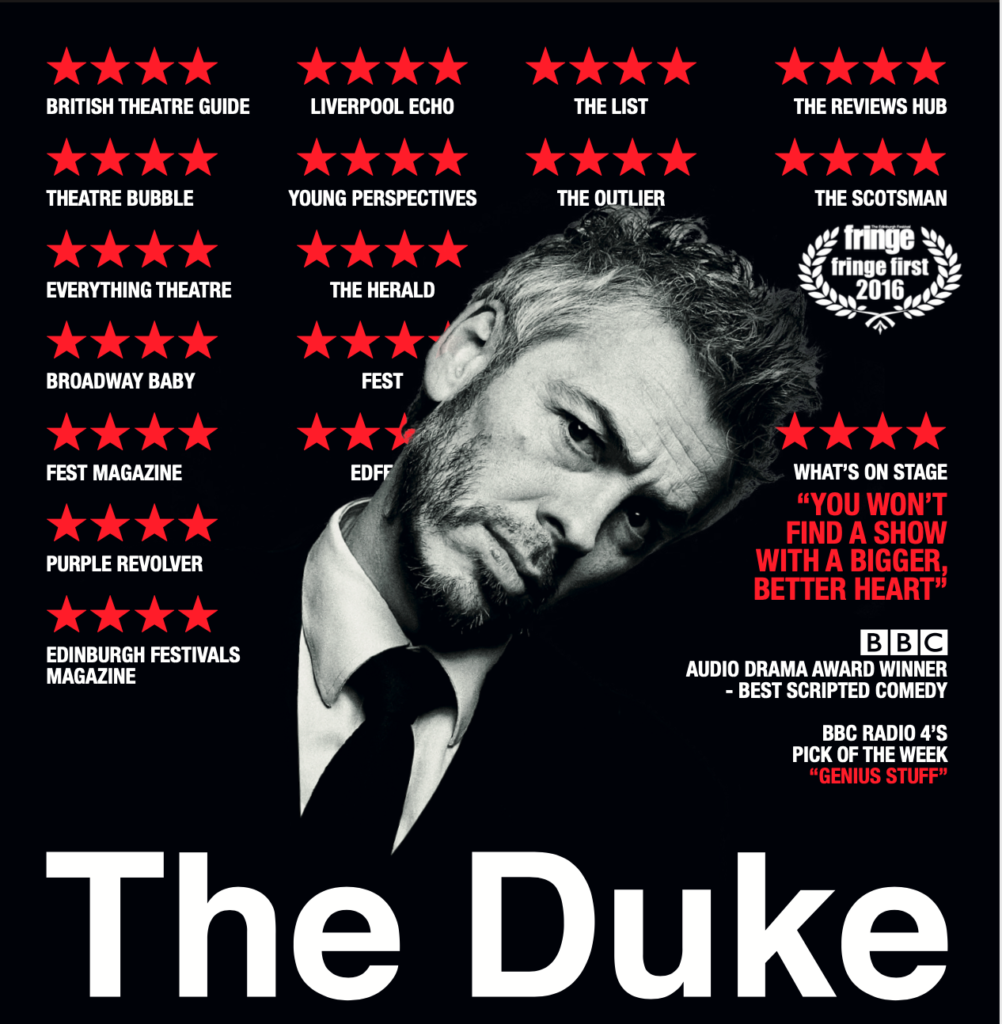
Over 20 4-star reviews
genius
THE DUKE, BBC Radio Pick of the Week
thoughtful, quietly powerful
The Scotsman’s Fringe First Award Winner | Edinburgh 2016
“Outstanding”
Theatre Bubble – Madeline Perham | 5 Star Review
“A fantastic and likeable storyteller”
Edinburgh Festivals Magazine | 4 Star Review
“He makes the real world seem wondrous and, in that, The Duke is its own antidote: art that alleviates, but also art that does its bit. This is art that practices its preaching: made for nothing, but doing something. And delighting as it does, just as art should. You won’t find a show with a bigger, better heart anywhere on the Fringe.”
What’s On Stage | 4 Star Review
Engaging and complex, existing somewhere between truth and fiction, drama and radio, fantasy and reality. Dale-Jones is a natural and immediately likeable storyteller.
The List | 4 Star Review
“Dale-Jones has achieved quite a special thing.”
Theatre Bubble | 4 Star Review
“This multilayered piece of time-travelling fiction is ingeniously constructed. The Duke asks powerful questions of social responsibility and accessibility, art and commerce, family and comradeship, all through the masterly mingling of fact and fiction.”
Fest Magazine | 4 Star Review
“Shôn Dale-Jones is a master story-teller. His one-man show, The Duke, is an impressive, multilayered piece, with an appeal that lies in the simplicity of the performer’s approach…”
The Upside Down News, Australia – Matthew Trainor
“His ability to move us seamlessly from one reality to another, with only his words as a theatrical device, is quite magical. He proves to be a marvelously imaginative writer”
Auditorium Magazine, Australia – Suzy Wrong
“…the quiet power of this funny, gentle and exquisitely empathetic jewel of a piece is its ability to humanise a global crisis by personalising it.
The Herald | 4 Star Review







